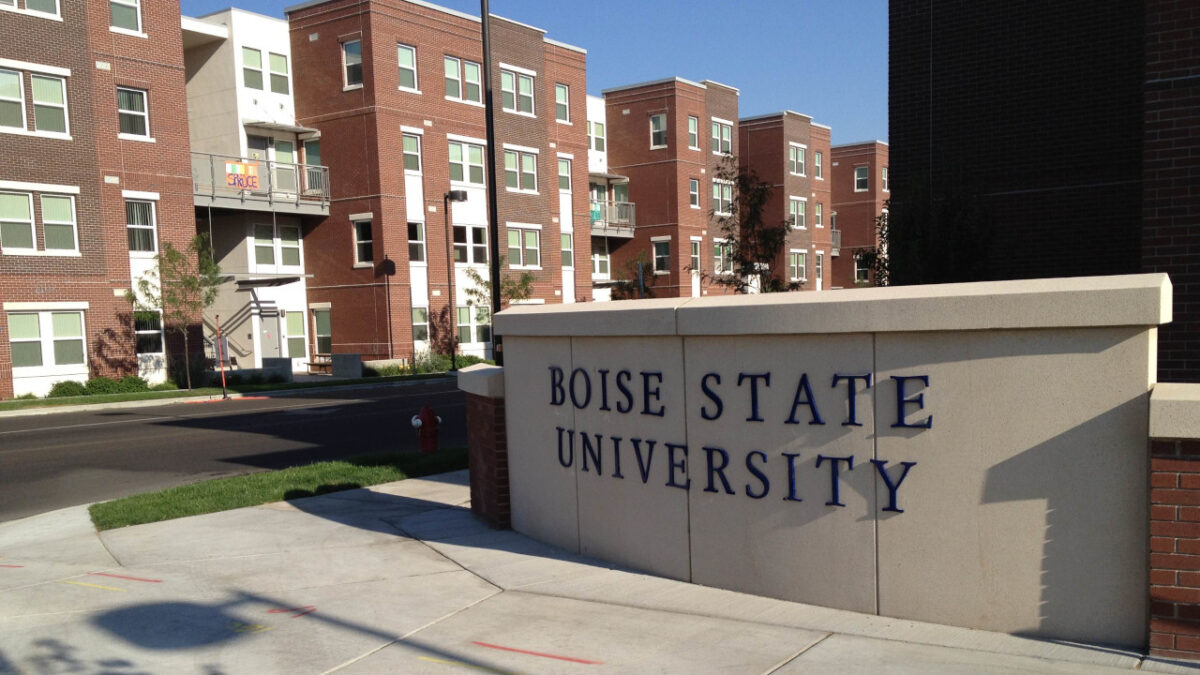Since state Rep. Barb Ehardt, R-Idaho Falls, first criticized Boise State University’s spending on radical social justice programs, the left has tried to paint conservatives as knuckle-dragging Neanderthals, sexists, and racists.
Misguided people on the left don’t want you to understand that conservatives work to make college accessible to all. Conservatives believe that all people, of every race, faith, and preference — everyone — should enjoy the blessings of education.
University apologists can’t defend the obvious truth: University costs are up, which makes college inaccessible for low-income families and challenging for middle-class families.
College costs are up, in large part, due to administrative bloat at universities. Schools are adding administrators and support staffers by the boatload, leading to large budget increases. These employees often serve to promote certain political agendas, not further enlightenment and instruction.
Support staff includes, for example, someone like Boise State’s Francisco Salinas, who earns nearly $80,000 a year, plus benefits, while directing the school’s diversity efforts. You might recall that Salinas intimated that a conservative BSU professor fueled neo-Nazi rhetoric simply because the professor postulated that transgenderism threatens parental rights.
The University of Idaho employs its own diversity cop. Yolando Bisbee, the school’s chief diversity officer, earns nearly $140,000 a year, plus benefits. Part of her job is to facilitate so-called safe space training around campus. Her office also provides guidance for students and faculty in Halloween costume selection to ensure some people aren’t offended.
Meanwhile, tuition races to the moon. BSU’s tuition has more than doubled from $3,520 per year in 2004-05 to $7,694 in 2018-19. University of Idaho tuition has also more than doubled from $3,520 per semester to $7,864 during the same period. Closer to home, ISU tuition has increased from $3,700 each semester in 2004-05 to $7,420 in 2018-19.
Keep in mind, too, that less than 60 percent of University of Idaho freshmen will earn their undergraduate degrees within six years. At BSU, that number’s a dismal 44 percent. Overall, a 2018 National Student Clearinghouse Research Center study found that only about 50 percent of students who enter Idaho’s higher education institutions leave with a degree, one of the worst rates in the nation.
Those who do earn a degree leave campus with loads of debt. A separate 2018 study by The Institute for College Access and Success found that Idaho students who borrowed to pay for college and graduated in 2017 departed with nearly $27,000 in student loan debt. That’s slightly better than the national average, but nothing to be proud of.
Idaho has much work to do to make college accessible to all. But that work shouldn’t focus on hiring diversity cops to police speech and enforce racial quotas in hiring. Instead, decision-makers should focus solely on bringing down tuition costs, which would allow diverse populations to more affordably enjoy the blessings of education.





